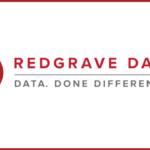Graduate degrees can offer a chance at high-income careers, but the rising costs of attendance have increasingly led to unequal outcomes, with many, particularly minoritized populations, swimming in debt years after graduation.
That’s why researchers at the Center on Education and the Workforce (CEW) at Georgetown University have released a new report, “Graduate Degrees: Risky and Unequal Paths to the Top.” It proposes a transparent analysis of graduate degree earnings potential to inform loan distribution, repayment, and potential students as they consider taking the next step in their postsecondary journey.
“Graduate degrees carry significant risks because the costs of a graduate education have tripled since 2000, and there’s significant amounts of debt, particularly under Grad PLUS Loan programs, without sufficient information or context whether or not the investment will pay off,” said Artem Gulish, senior federal policy advisor at CEW and one of the authors of the report.
 Artem Gulish, senior federal policy advisor at CEW and one of the authors of the report.
Artem Gulish, senior federal policy advisor at CEW and one of the authors of the report.
Yet the research reveals insufficient data collection on graduate programs, thanks in large part to the need to protect the privacy of students in smaller programs. In studying master’s degree programs, CEW researchers found earnings data for only 23% of programs, and professional degree earnings data was only available for 29% of programs.
Available data do indicate an alarming trend. Forty-one percent of master’s programs and 67% of professional degree programs would not pass CEW’s proposed debt-to-earnings tests. Notably, among master’s degree programs, 180 social work programs, 176 student counseling programs, and 162 teacher education and professional development programs failed the debt-to-earnings tests. These “socially valuable professions” often do not pay as much, said Gulish, which is why CEW proposes that federal and state government subsidizes graduate education in these fields, reducing the overall amount borrowed.
The few doctoral degree programs studied showed that even a doctoral degree in law did not pass the debt-to-earnings threshold test.
“In some cases, you may find some profession’s earnings have not kept pace with the cost of the degree,” said Catherine Morris, senior editor and writer at CEW and a former staff reporter at Diverse. “You do get an earnings boost from a law degree, but the debt may be higher than can be comfortably supported on those earnings.”
The Grad PLUS Loan Program, which covers any costs of graduate school not covered by the direct unsubsidized Stafford loans, accounts for 32% of loans distributed to graduate students. Grad PLUS Loans are most often utilized by those from low-income and low-wealth backgrounds. Black students make up 16% of all Grad PLUS borrowers, four percentage points higher than all other graduate students.
This inequity in debt-burden becomes exacerbated by work-place discrimination. The report reveals that median earnings among Native Americans, Alaskan Natives, and Latinx workers are $16,000 less than the median earnings of all graduate degree holders and significantly less than white or Asian American graduates.
“With no intergenerational wealth to support these investments, [minoritized students] have to take out PLUS Loans for these graduate programs,” said Gulish. “We know from earnings data, the gap in the market of race, ethnicity, and gender, they have a hard time getting those substantially higher earnings in the labor market. So basically, they face inequalities in both senses—in financing their education and getting that return in the labor market.”
To counteract these effects and increase available data, the report suggests that graduate programs collect pass/fail data to share with the U.S. Department of Education’s College Scorecard. The more data the College Scorecard can collect will allow for more anonymity as it pools earnings and debt data across more cohorts. The report also suggests greater data collection on things like program completion and withdrawal rates, repayment rates for borrowers, and what primary occupations students can expect to obtain post-graduation.
“Graduate education plays an important role in our society, in economic competitiveness, especially with technological advancements that are rapidly happening now,” said Gulish. “It’s about setting from the top a sustainable way where more people can [go to graduate school] without facing unnecessary financial risks, and the programs that are really promising can stand out and develop.”
Liann Herder can be reached at [email protected].
#Report #Calls #Reforming #Graduate #School #Debt #Data #Collection










